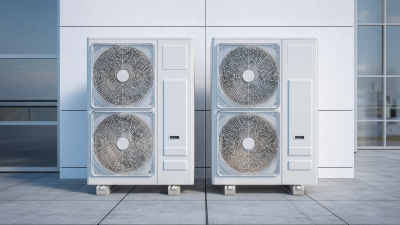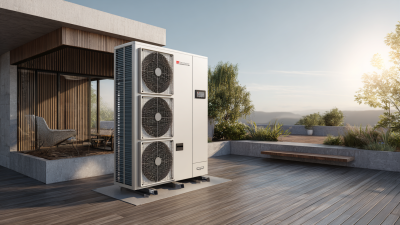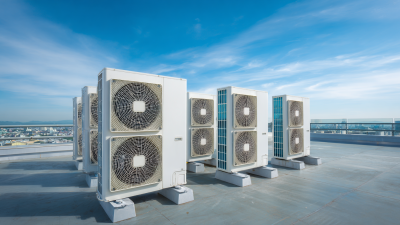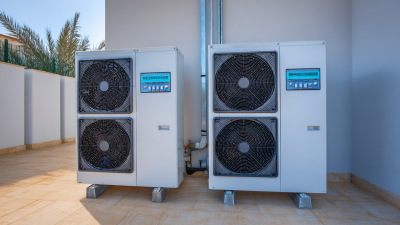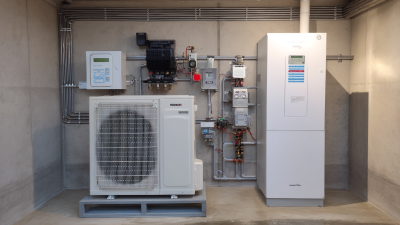Leave Your Message
In today's environmentally conscious world, choosing the right heating system for your home is more important than ever, and the Heat Pump Heater stands out as a leading choice for global buyers seeking energy efficiency and sustainability. With an array of options available, it can be daunting to navigate through the factors that influence your decision. This ultimate checklist will guide you through key considerations for selecting the ideal Heat Pump Heater that meets your specific needs. From understanding the heating capacity and energy efficiency ratings to evaluating the installation requirements and long-term maintenance costs, staying informed about these critical elements will empower you to make a sound investment. Whether you're upgrading an existing system or installing a new one, this checklist will ensure you make the best choice for comfort, functionality, and environmental impact.

 When selecting heat pump heaters for global markets, several key factors must be taken into account to ensure optimal performance and efficiency. First and foremost, climate compatibility is vital. Different regions experience varied temperature ranges, influencing the heat pump’s efficiency. For instance, a heat pump designed for colder climates needs to have enhanced performance capabilities at low ambient temperatures, while those in warmer regions focus on cooling efficiency.
When selecting heat pump heaters for global markets, several key factors must be taken into account to ensure optimal performance and efficiency. First and foremost, climate compatibility is vital. Different regions experience varied temperature ranges, influencing the heat pump’s efficiency. For instance, a heat pump designed for colder climates needs to have enhanced performance capabilities at low ambient temperatures, while those in warmer regions focus on cooling efficiency.
Another critical consideration is energy efficiency ratings. As global awareness around sustainability grows, buyers should look for heat pumps with high Seasonal Energy Efficiency Ratios (SEER) and Heating Seasonal Performance Factors (HSPF). These ratings not only inform customers about the expected energy consumption but also impact their long-term operational costs. Furthermore, local energy regulations and incentives play a significant role in shaping purchasing decisions, as compliance can lead to benefits such as rebates or lower energy tariffs.
In addition to climate and efficiency, the availability of service and support should not be overlooked. A robust service network ensures that maintenance and repairs can be conducted with minimal downtime. Buyers should investigate manufacturers with strong reputations and reliable warranties, as these factors contribute to the overall longevity and reliability of their heat pump systems in global markets.
When considering a heat pump heater, understanding the different types—air, ground, and water sources—is crucial for making an informed decision.
Air source heat pumps operate by extracting heat from the ambient air, making them a practical choice for many residential settings. These systems are relatively easy to install and can offer significant energy savings, especially in moderate climates. As data suggests, they can effectively replace traditional fossil fuel heating systems, thereby reducing carbon footprints.
Ground source heat pumps, or geothermal systems, provide another efficient option by harnessing the stable temperatures found underground. Recent studies indicate their applicability in various regions, including Central Asia, where a case study in Dushanbe demonstrated successful heating and cooling applications.
Water source heat pumps, which draw energy from nearby bodies of water, also present a viable alternative for homeowners with access to such resources. By exploring these diverse options and utilizing tools for assessing life cycle costs and environmental impacts, buyers can make strategic choices that align with both their financial and sustainability goals.
When considering a heat pump heater, energy efficiency is paramount. Buyers should familiarize themselves with key ratings such as
Seasonal Energy Efficiency Ratio (SEER) and
Heating Seasonal Performance Factor (HSPF). SEER measures the cooling efficiency of heat pumps in warmer months,
while HSPF evaluates their heating efficiency during colder periods. A higher SEER or HSPF value indicates
better efficiency, leading to
lower energy bills and reduced environmental impact.
It’s important to note that energy efficiency ratings are influenced by various factors, including
geographic location and climate conditions. For instance,
a heat pump with a high HSPF might be ideal for colder regions, while a unit with an exceptional SEER rating could be
more beneficial in warmer areas. Understanding these ratings not only aids buyers in selecting the right unit for their needs
but also ensures they can maximize their investment by choosing a heat pump that operates effectively throughout the year.
When evaluating heat pump systems, a critical aspect for global buyers is the cost analysis between upfront investments and long-term savings. According to the International Energy Agency (IEA), the initial installation cost of heat pumps can range from $3,500 to $8,500 depending on the system type and complexity. This might seem steep compared to traditional heating methods, but these systems offer significant operational efficiencies. Studies show that heat pumps can reduce heating costs by approximately 50% compared to electric resistance systems, promoting further savings over time.

Additionally, the lifetime of a heat pump typically spans 15 to 20 years, resulting in an attractive return on investment. Data from the U.S. Department of Energy indicates that homeowners can save between $1,200 and $2,000 over a decade in energy costs when opting for heat pump heating solutions. Furthermore, many regions offer rebates and incentives which can substantially lessen the initial investment, thereby making heat pumps not only a more environmentally friendly choice but also an economically sound one.
When selecting a heat pump heater, understanding regional climate patterns is paramount. Recent studies highlight the distinct challenges posed by varying climates. For instance, a systematic review on energy conservation measures (ECMs) examined the importance of long-term viability in the face of climate change, suggesting that ECMs need to be tailored to local weather conditions for maximum efficiency. This adaptation is crucial as increasing global temperatures may affect the operational efficiency of different heat pump systems.
Furthermore, evaluating the sizing and economic assessment of air-water heat pumps underscores the necessity of climate-based methodologies. Research indicates that these systems perform optimally when accurately sized for ambient temperature ranges typical of specific regions. In cold climates, for example, ground source heat pump systems have shown impressive resilience and efficiency, making them a preferred choice in areas prone to extreme weather. As energy costs fluctuate, consistently opting for the right heat pump based on local climatic conditions will not only lead to energy savings but also ensure long-term sustainability in residential heating solutions.
